Movie Review: If You Were Me (2003)
by refresh_daemon
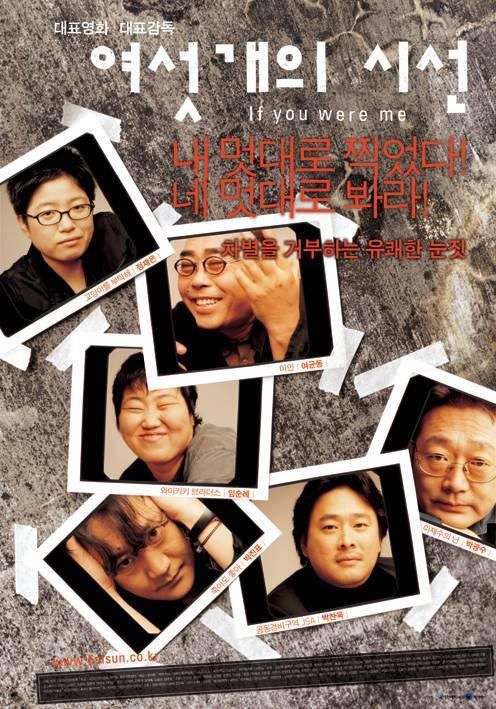
![]()
In 2001, the National Human Rights Commission of Korea was formed. A government body tasked with promoting human rights in Korea in accordance with the principles set forth by the UN General Assembly, they can probably list many things that they have accomplished. But for me, one of the most visible accomplishments is the funding of eight film projects, including the omnibus films entitled If You Were Me. With the most recent installment, If You Were Me 6, having been released just last autumn, I wanted to take a trip back to 2003 when the Commission funded their very first feature omnibus film, the first If You Were Me (여섯 개의 시선).
2003 was a year of great highs for Korean cinema. Korean film utterly dominated the local box office. Several Korean films gained an international following, including the cult favorite Oldboy, the horror film A Tale of Two Sisters, and Kim Ki-duk’s Spring, Summer, Fall, Winter… and Spring. And then there was the record-breaking box-office local smash of Silmido, which did almost double the business of its closest rival, Lord of the Rings: The Return of the King, by the time it finished its run.
Perhaps it was because of the building momentum of Korean cinema that the Commission decided to use the cinema as a means of creating awareness for human rights issues in Korea. They picked six directors, each of notable repute in Korean cinema, to make six short films dealing with issues of their choosing. Other than giving each director a budget and the mandate to tackle a human rights issue, the directors were given free rein to make whatever they want. And the final result is fascinating.
The six films are arranged end on end and are meant to be seen as a single feature, but given the freedom that the directors were given, they are wildly different. And yet, together, they form a tapestry that is quite effective at highlighting societal issues faced in Korea.
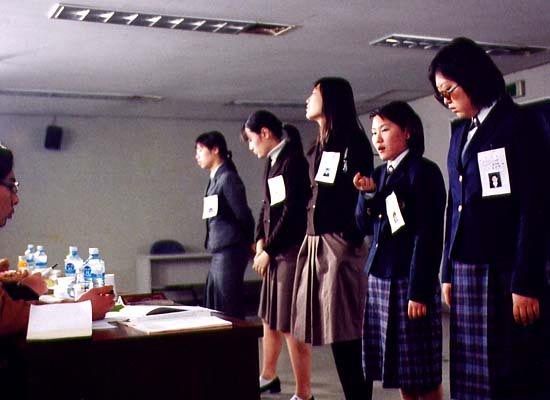
The Weight of Her
The first short, The Weight of Her, was directed by Im Soon-rye (Waikiki Brothers) and follows the life of a large-bodied high school girl (Jo Sun-kyung).
She is obsessed with getting eyelid surgery while she and her classmates are constantly lectured by their teachers on how they have to conform to a specific ideal of Korean femininity in order to be able to secure a future job and husband. When her mother won’t pay for her plastic surgery, she goes hunting for a part-time job to earn it herself and discovers that it’s not easy for a large-bodied girl to get a legitimate part-time job.
This is by far the most straightforward of the shorts in this omnibus, directly showing the unfortunate position that most Korean women find themselves in: They are judged first by their appearance. And every force in their lives from their teachers to their employers and romantic partners reinforce this, even if many of them are simply trying to help them get ahead in a harsh social environment. And the short works splendidly in displaying those cruel ironies in a sympathetic way.

The Man with an Affair
This is followed by the impenetrable The Man with an Affair by Jung Jae-eun (Take Care of My Cat). Set in an almost Orwellian near-future Seoul, the short sets up two protagonists: Mr. A (Baek Jong-hak), a registered sex offender and pariah in his huge apartment complex, and a young boy (Jeon Ha-eun) who lives in the same complex and struggles with bed-wetting.
After an episode of bed-wetting, his mother (Byeon Jung-soo) loses patience with the boy and gives him a traditional punishment for his crime: He will not be let back in the house until he can fill a bucket of salt gathered from his neighbors. But when his neighbors prove to be unsympathetic, will he have to turn to Mr. A?
This film is easily one of the more aesthetically interesting sequences in the omnibus, with a simple but striking stark white design that utilizes Jung Jae-eun’s captivating use of text that she demonstrated in Take Care of My Cat. It also dares to raise the issue of the human rights of people who have done really bad things.
Unfortunately, The Man with an Affair ends up being much too vague, never really doing more than presenting a situation and completely dancing around the actual human rights issue without ever really touching it. So despite its high visual and atmospheric appeal, it’s a bit of a miss.
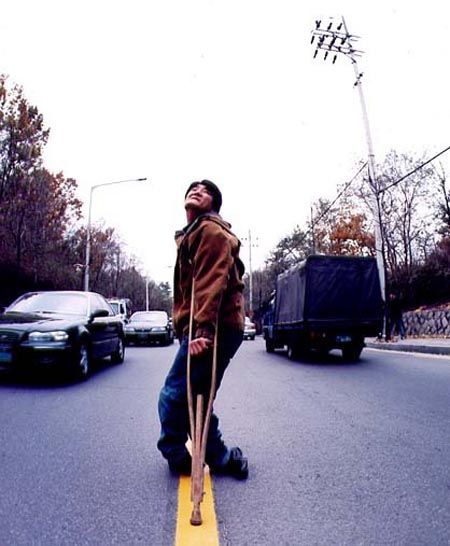
Crossing
The third short is Crossing, helmed by actor-director Yeo Gyun-dong. Utilizing the disabled acting troupe Hwol, Yeo uses a series of vignettes to follow the mundane struggles of Moon-joo (Kim Moon-joo), a man with cerebral palsy. These moments begin with Kim struggling to take a photo in a photo booth and progress with just a little narrative as we hear about a protest of disabled people that is being suppressed by the government. This somehow gives Moon-joo the idea to try crossing a busy intersection during high traffic.
Some of these vignettes are highly illustrative of many disabled people’s issues, but are presented in a friendly, sometimes comic tone. Two of my favorites include a vignette where Moon-joo struggles to get himself out the door, but when he drops his keys, his overly helpful neighbor ajumma comes by, presumes he was trying to get in, and proceeds to “help” him back inside. In addition to comic moments, the film also presents scenes where Moon-joo drinks with a buddy and tries to confess his feelings to a woman, showing that disabled people are just like the able-bodied in most ways.
Crossing works best in illustrative scenes like those and even subtler moments where Moon-joo’s family goes out to an engagement party without him—the omission speaking loudly about how disabled people are considered (or not!) in society. On the other hand, the actual idea of crossing the street is never really explained or explored beyond the practice and attempt sequences. It’s hard to make sense of it and since it takes up a significant part of the narrative energy, it weighs down what might have been a series of amusing insights into the lives of the disabled.
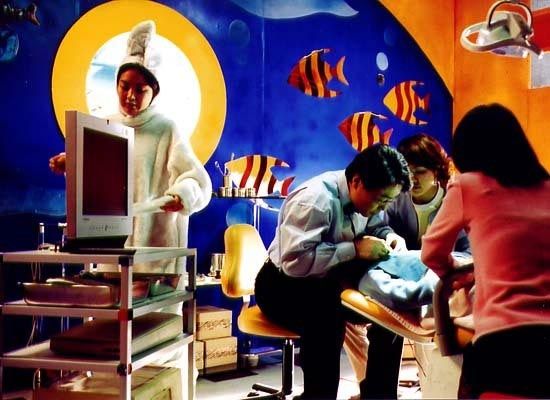
Tongue-Tied
Tongue-Tied is not for sensitive viewers due to graphic surgical documentary footage. Director Park Jin-pyo had previously pushed boundaries with his septuagenarian romance film Too Young to Die, which features a geriatric sex scene. So, while the short is shocking because of its content, it’s not surprising if you’re aware of his work.
The sequence begins with some home video footage of a boy (Kim Soo-min) singing in English in what appears to be a church show. We are then treated to aforementioned surgical sequence as the boy undergoes surgery to help him speak better English and concludes with several statements from children who are frustrated with their need to learn English.
Although the narrative is admittedly sparse, in many ways Tongue-Tied actually works more as a documentary as it reflects the impact of the society’s drive to learn English on its children, particularly due to the use of real-life footage and statements from children. Having us sit with the boy as he gets surgery, while horrific to witness, impresses on us the pains parents press on their children to give them an edge in their hypercompetitive world.
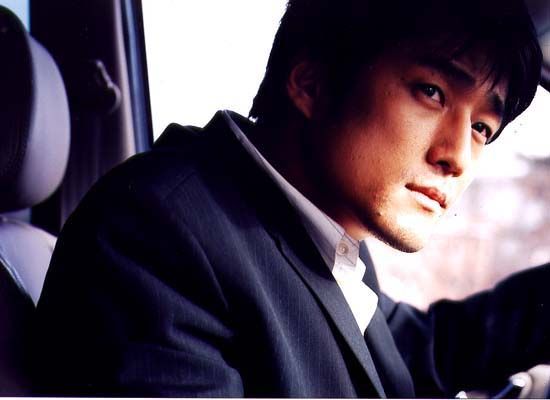
Face Value
And then we have something completely different in Face Value as we watch a man (Ji Jin-hee) wake up after heavy daytime drinking in a parking garage. Then he gets upset when the attractive garage attendant (Jung Ae-yeon) is short with him. He proceeds to lecture her and she fires right back at him, sending him into a rage. But things turn out to be not as they seem.
Before the final twist, Face Value is an interesting double commentary, both on the treatment of service workers in general as well as the treatment of female service workers by their customers. And in just that part alone, Face Value does lend itself to reflection, especially at the entitlement of customers and the dehumanization of service workers as well as how gender and sex play into weighting those interactions.
Seeing how successful that much of the short is, it’s a bit puzzling that director Park Kwang-su (Black Republic) even added the twist in, since it doesn’t really add anything to the commentary or the narrative, while introducing an unnecessary genre element. That said, the rest of the short works well enough that I still think Face Value is a successful piece.
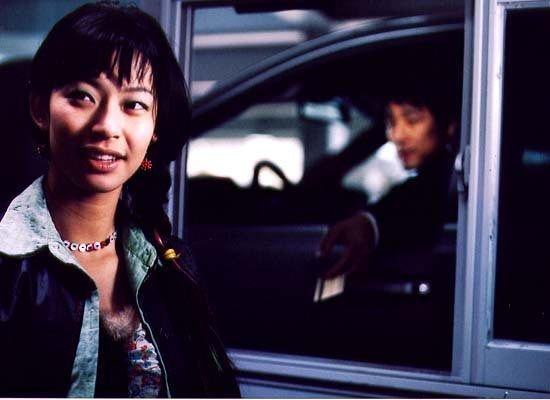
N.E.P.A.L.: Never Ending Peace and Love
The final segment of If You Were Me, N.E.P.A.L.: Never Ending Peace and Love, comes from its highest-profile director: Park Chan-wook of Joint Security Area and Oldboy fame. It also happens to remain one of director Park’s most radical and affecting films.
N.E.P.A.L. is kind of a documentary, built upon dramatized re-creation of the true story of Chandra Kumari Gurung (Rama Kanchan Maya), a Nepalese immigrant worker in the Republic of Korea. One night, after being separated from her coworkers, she loses her money and finds herself unable to pay for food she purchased.
Due to her inability to speak much Korean and that Nepalese from her region look very much like Koreans, the police mistake her for a Korean women with mental illness and send her to a psychiatric institution. There she stays locked up for six years as they try to figure out why this obviously Korean woman is unable to communicate with the staff.
Aside from the bookending of the short with documentary footage of Chandra (as herself) in her Nepalese village, most of the film is shot from Chandra’s first-person perspective, intercut with stylized interviews with the various people Chandra encountered during her time in Korea. All of these scenes are dramatizations of Chandra’s actual story, so most of them are performed by actors.
The various vignettes are also highly stylized with Park making heavy use of filters and post-processing to create looks ranging from color temperature shifting to high contrast and solarization. This acts, in part, as a way to signal that we are indeed seeing a dramatization of her story.
Interestingly enough, this signaling of the short’s artifice doesn’t hinder the short’s credibility because the documentary format is still delivered straight. What’s more, I think Park’s choice to use first-person perspective in Chandra’s scene really works to put us in Chandra’s shoes, and the interviews with other Nepalese, as well as the Koreans she worked for, gives us the context to understand what is happening from her perspective.
With N.E.P.A.L., Park effectively highlights issues of human rights around the many migrant workers that end up serving a segment of the Korean labor force. The film also demonstrates Korea’s lack of readiness to interact with the labor force that it brings in, whether lawfully or not, and to protect them from both abuses by their employers and the government, as well as neglect by both.
It also acts as a tour de force of stylistic experimentation from Park in a format that he doesn’t often work in. So, for effectively addressing both a significant human rights issue in Korea and doing so with a heavily, but appropriately, stylized form of filmmaking, N.E.P.A.L. is an excellent way to conclude the greater omnibus.
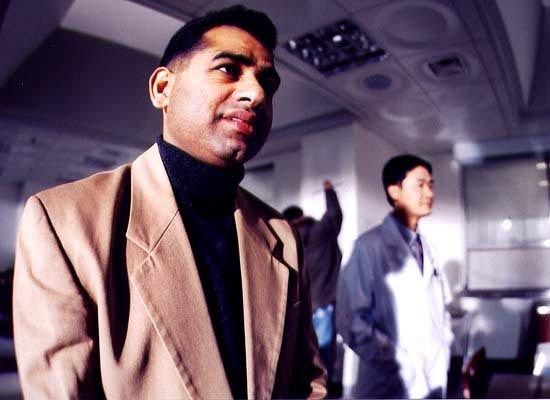
Conclusion
While each short is capable of standing on its own individually, together they form a mosaic that represents lesser heard voices in Korean society. Most of these people groups and issues do not play a prominent part of Korean mainstream media. In that sense alone, If You Were Me is a worthy project in both its making and viewing.
Even though each director ended up choosing unrelated subjects and shooting them in wildly differing styles, they are united by the purpose of highlighting human rights issues and that gives the omnibus a kind of thematic and narrative focus that many other omnibuses might lack. It’s that focus that binds the different shorts together and makes them a unified picture.
Even the weakest shorts in this bunch stimulate thought and giving the directors creative freedom results in some pretty amusing, shocking, and captivating moments. Add that to the film’s greater thematic unity and focus on segments of Korean society that are not often in the spotlight and you have yourself an omnibus feature that’s almost a must-see for those who are interested in Korea as well as fans of excellent omnibus filmmaking. Highly recommended. 9/10.
Availability: If You Were Me appears to be out of print on disc worldwide and without digital distribution. It does seem that used editions of the North American discs released by the American branch of Hong Kong’s Winson Entertainment are still available via secondhand market and auction sites.
Tags: featured
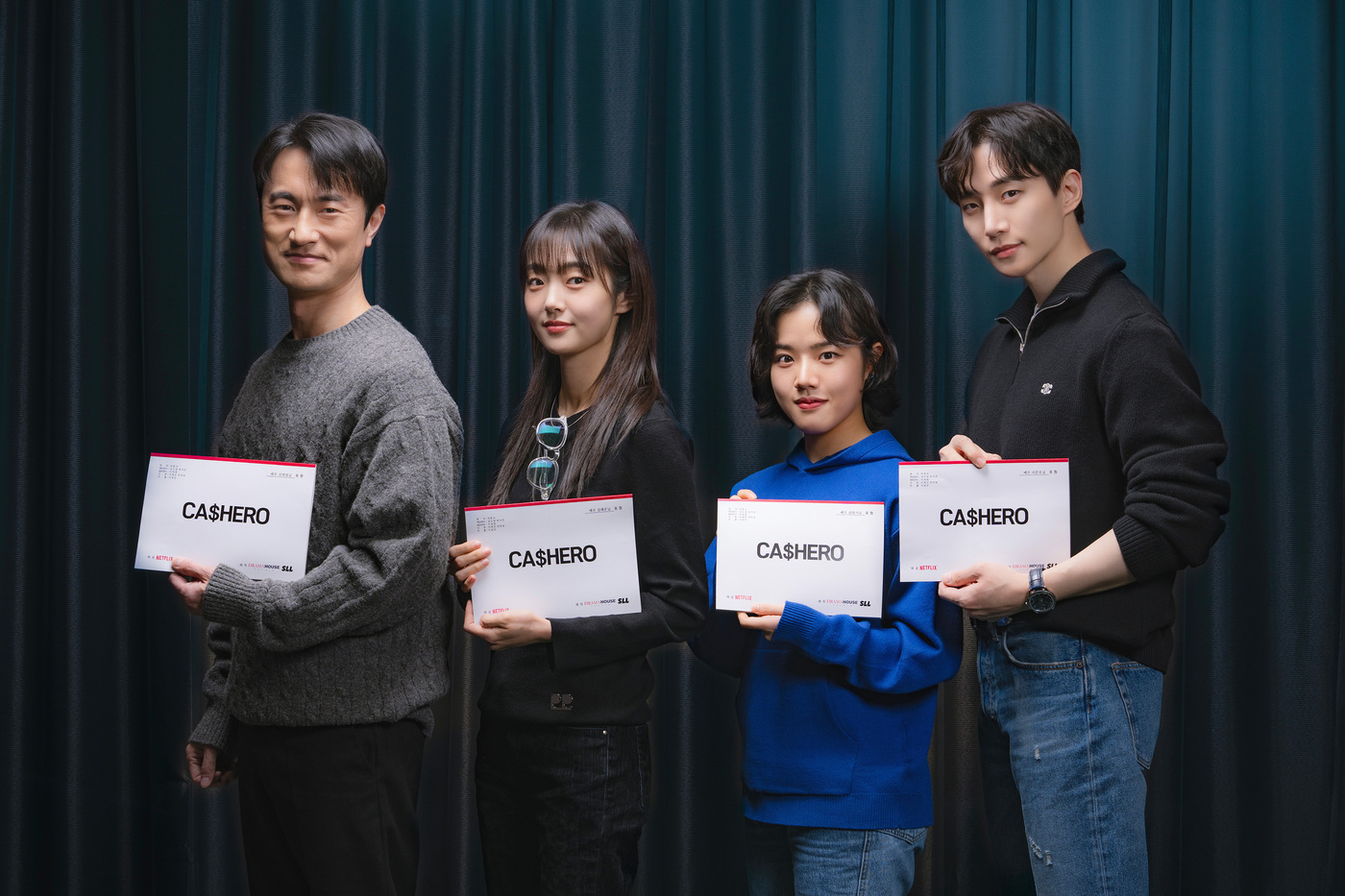
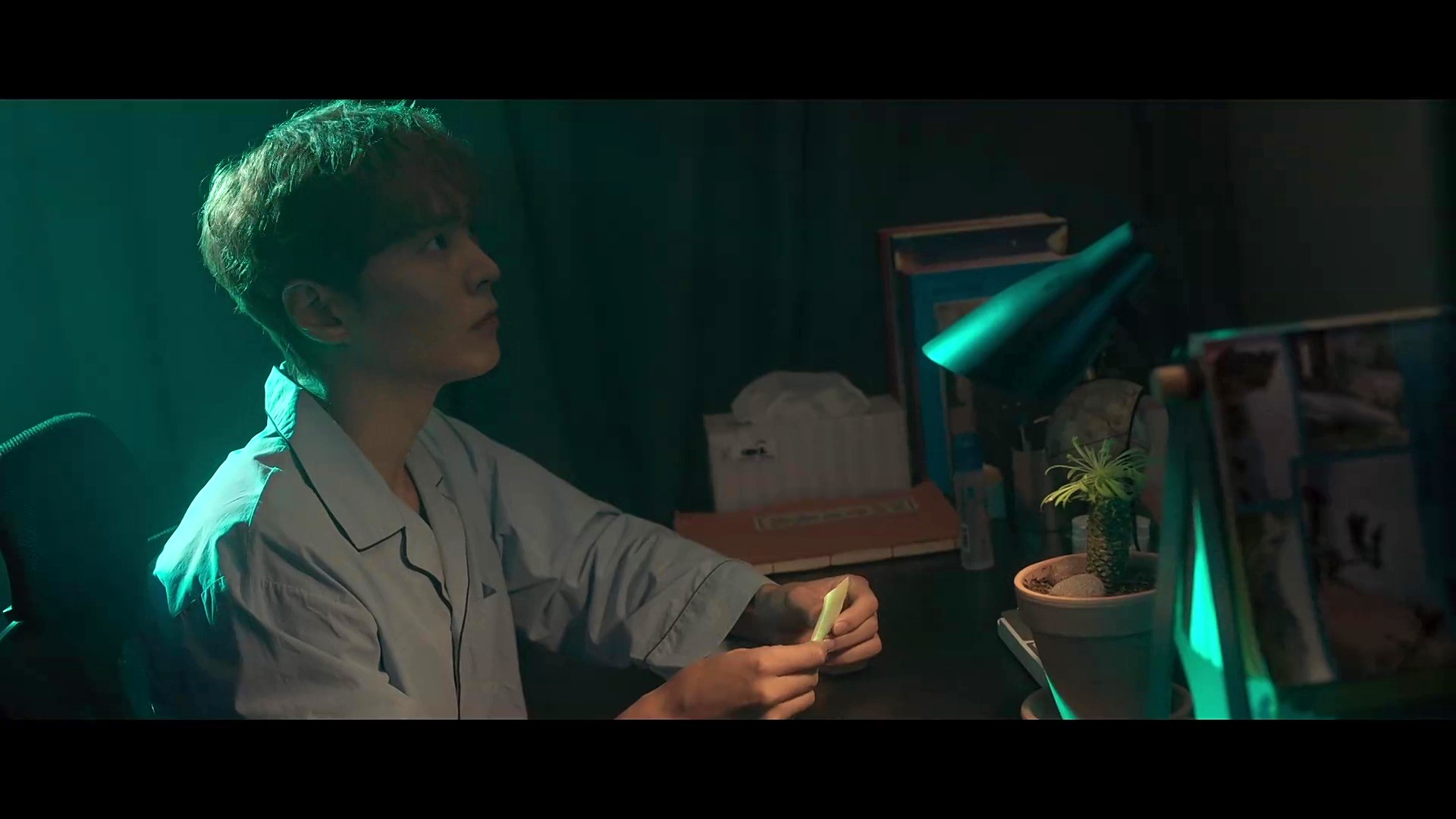
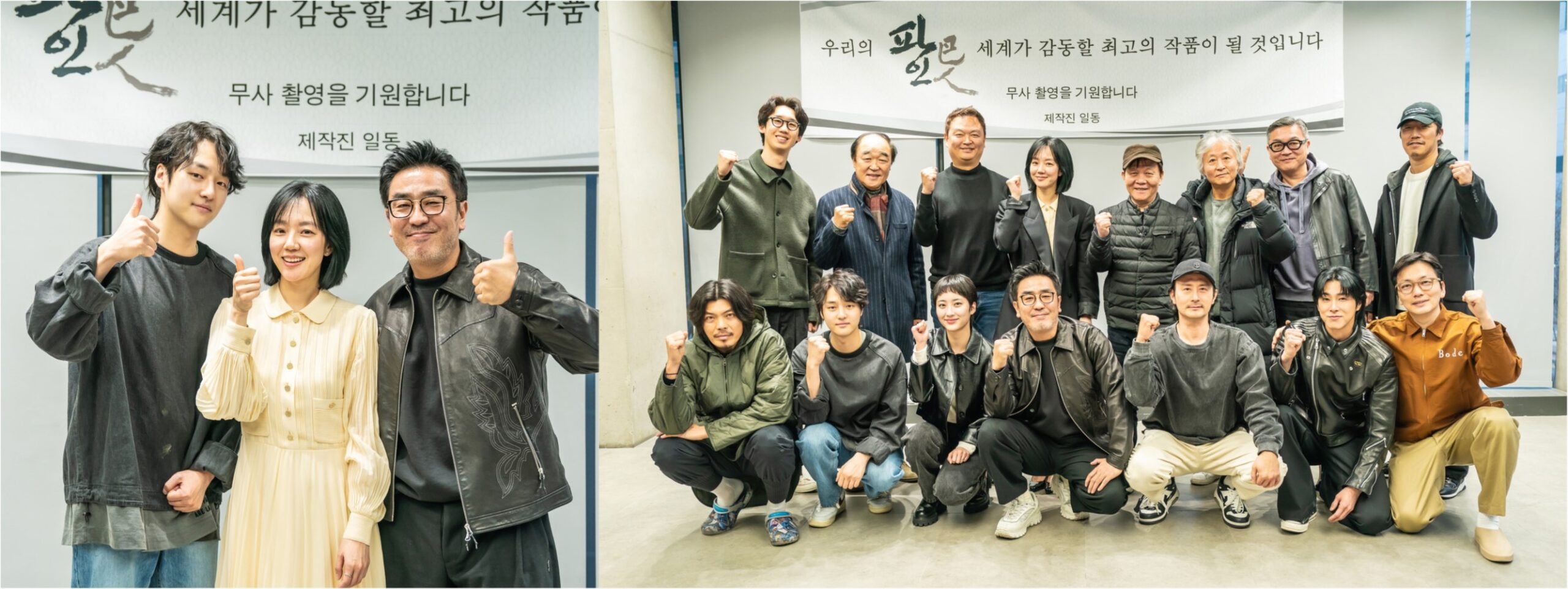
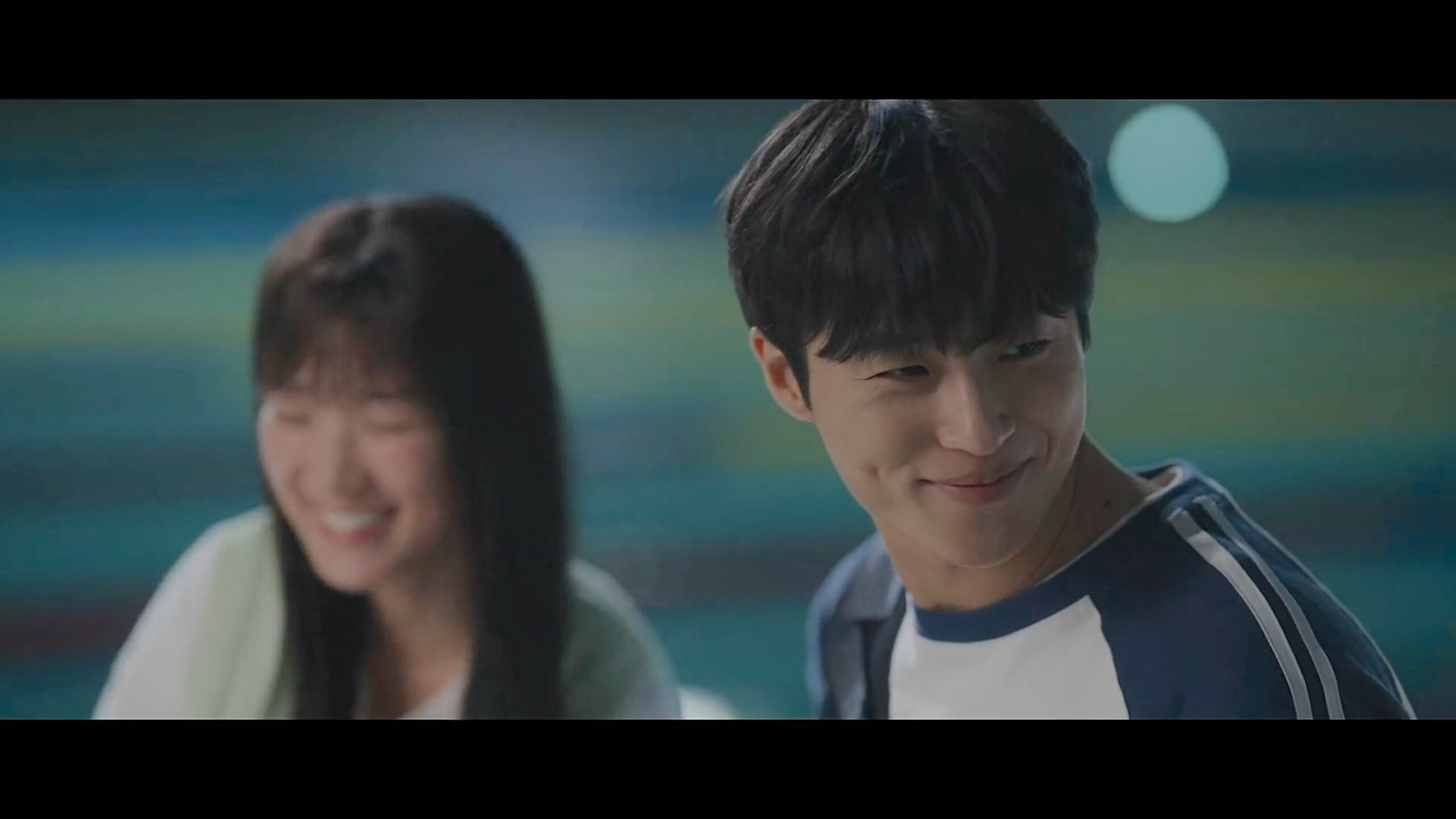
![[Beanie Recs] Dramas about fangirling](http://d263ao8qih4miy.cloudfront.net/wp-content/uploads/2022/05/BeanieRecs.jpg)
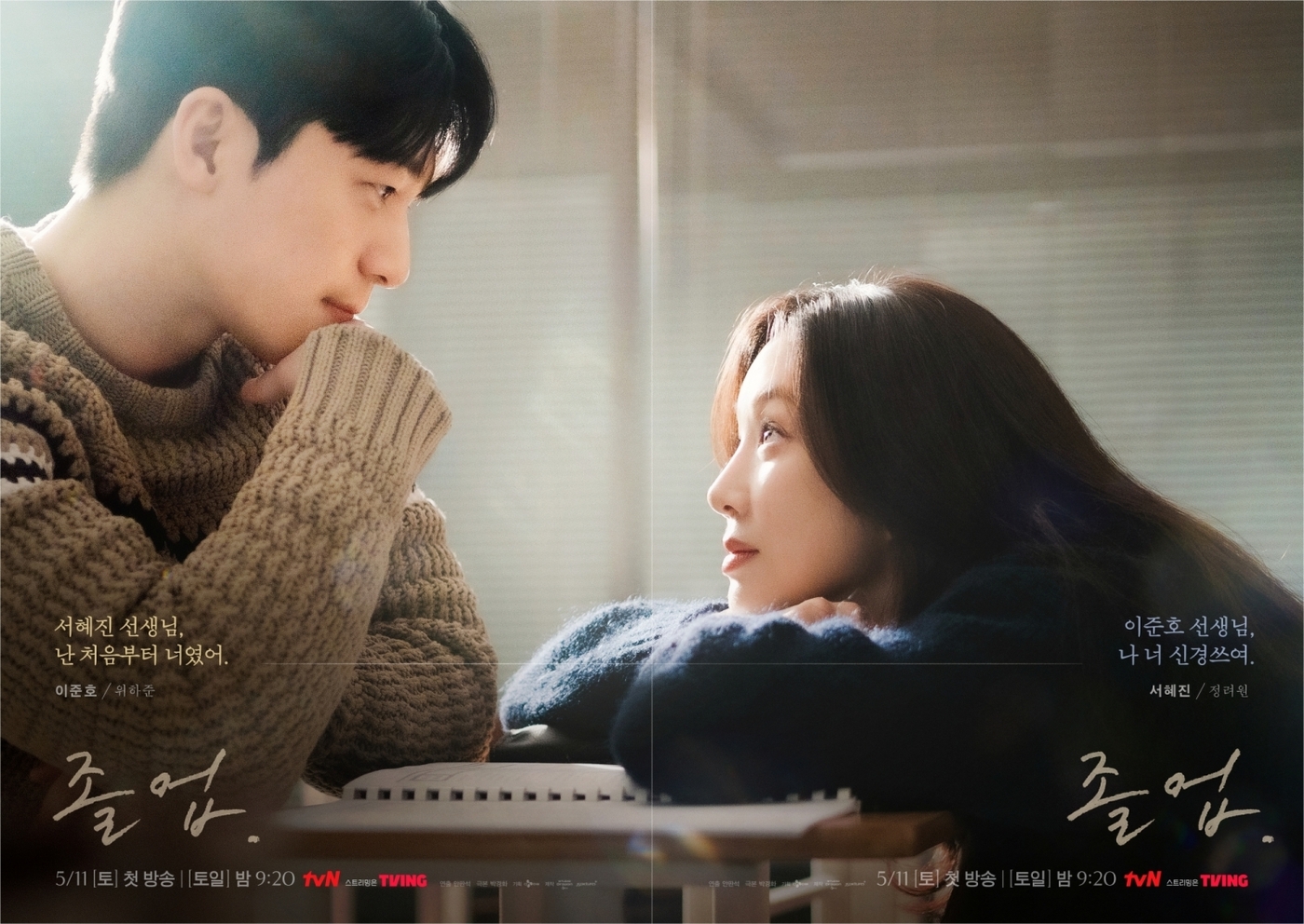
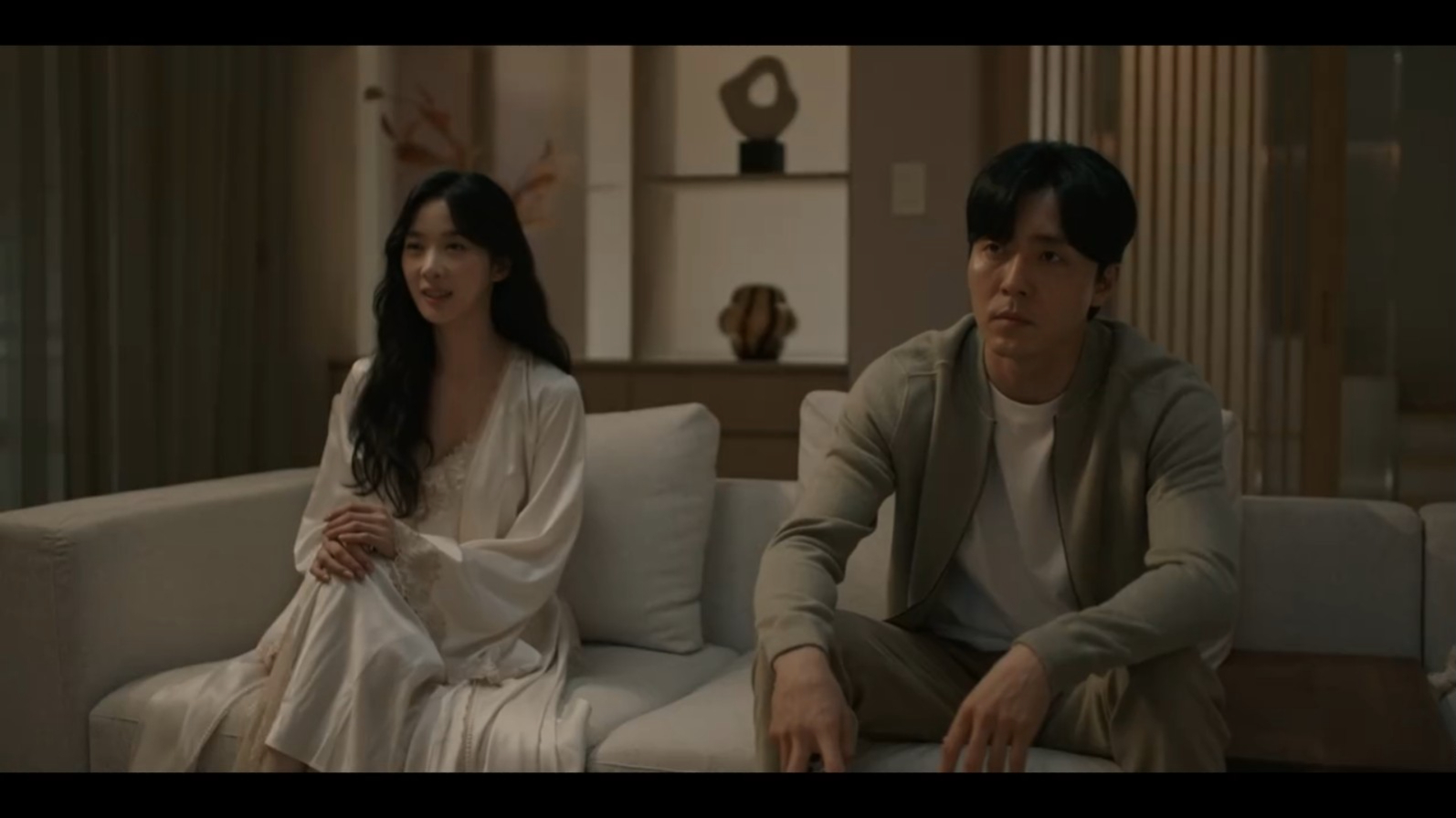
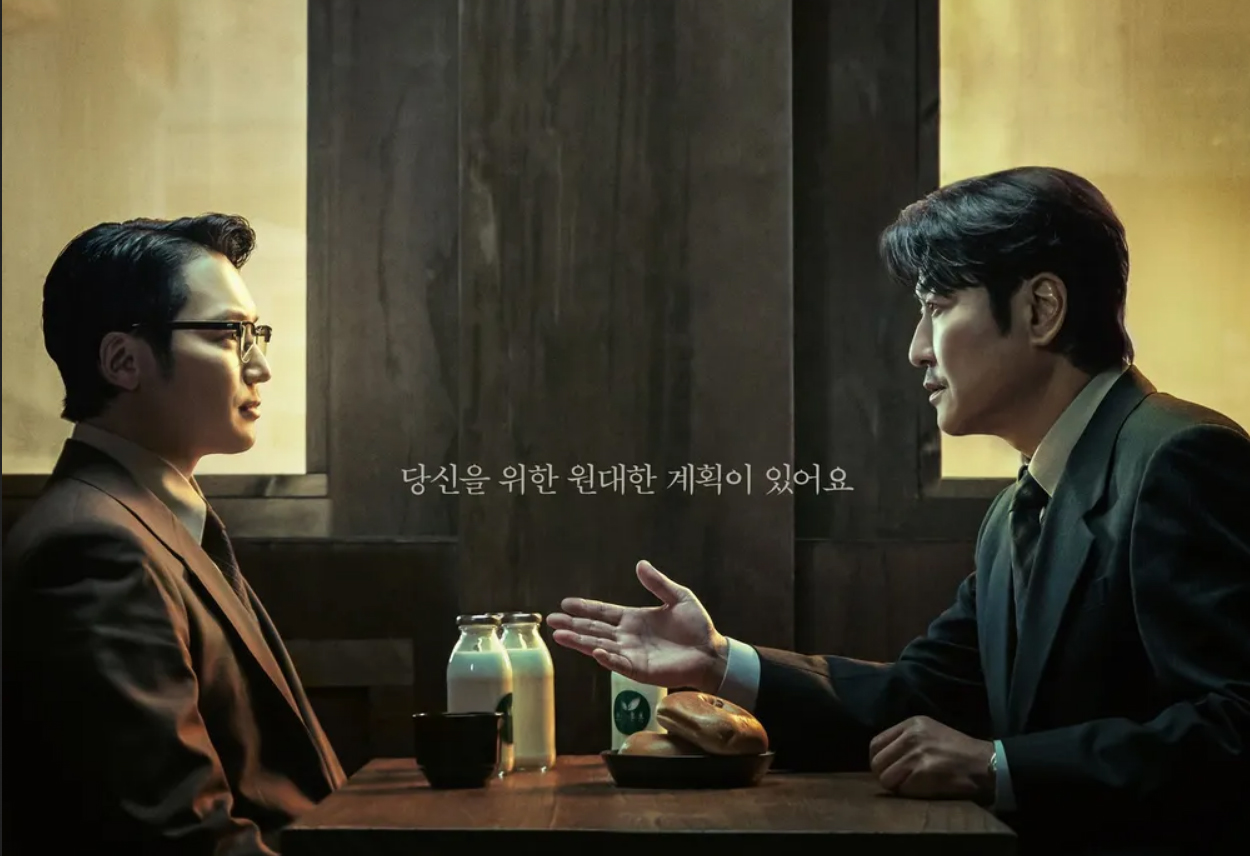
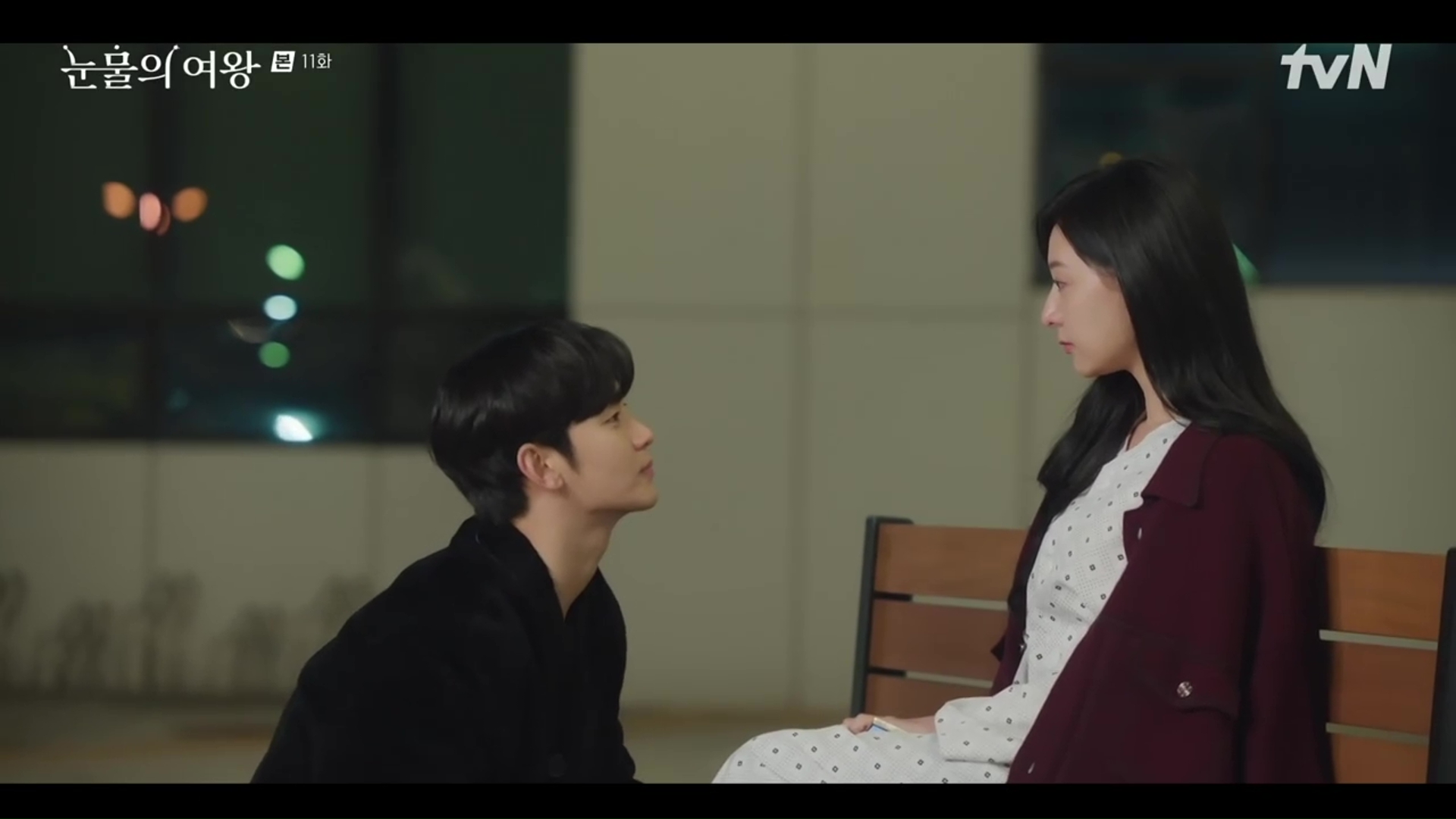
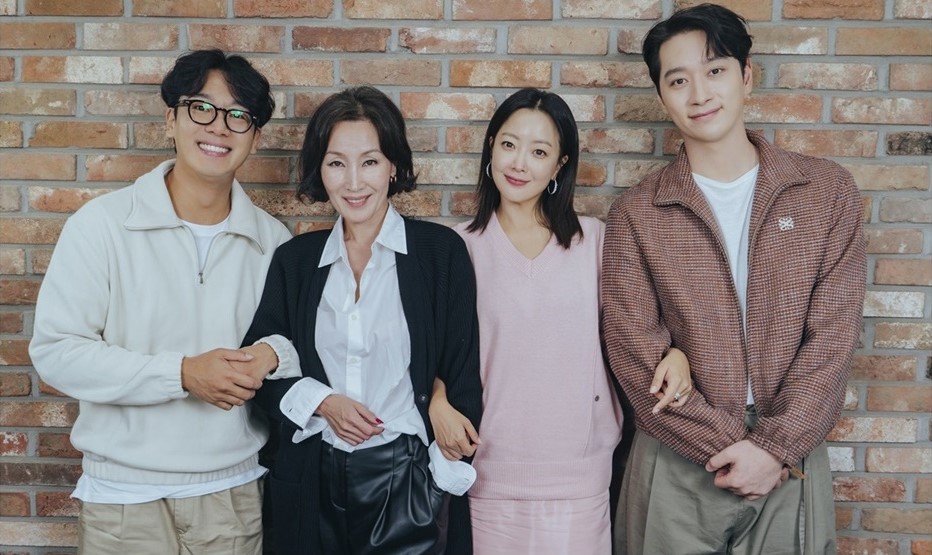
Required fields are marked *
Your email address will not be published. Required fields are marked *
1 nokcha
August 9, 2014 at 8:51 PM
Though I thought I was fairly familiar with Korean film, especially during that time period, I have never heard of any of this series.
Interesting stuff. I wonder if the Korean Film Archive here in Seoul has a copy or screens this.
As for Park Chan Wook, I think his strength is his ability to tell a story.
Required fields are marked *
2 Arhazivory
August 9, 2014 at 9:48 PM
Thanks for the review. The shorts seem to be most intriguing and disturbing. That last story breaks my heart.:'(
Required fields are marked *
3 jillifish
August 10, 2014 at 12:42 AM
Thanks for this review! I have never heard about this project before but I will put it onto my watchlist along with the next five installments. I found it very interesting how all the societal issues were so different yet all fall into the category of basic human rights.
Required fields are marked *
4 CaroleMcDonnell
August 10, 2014 at 2:23 AM
Thanks! I've been meaning to see this ever since Kim Yoon-mi mentioned it on open thread.
Required fields are marked *
5 eva
August 10, 2014 at 3:03 AM
Thanks for the recommendation! I find the first short about the schoolgirl especially interesting, I´ve been wanting to watch something that deals with meeting the beauty standards in South Korea, and not in a way, say, "200 pound Beauty" (that horse-raddish of a movie was beyond me). Off to watch!
Required fields are marked *
6 risa
August 10, 2014 at 11:19 AM
Thanks so much for highlighting this very interesting and worthwhile project, refresh_daemon!
Chandra Kumari Gurung's story is both sad and shocking. I'm especially interested in seeing that film. I also found shocking the idea of having tongue surgery in order to (allegedly) be able to speak better English. I found an article about it here: http://articles.latimes.com/2004/jan/18/news/adfg-tongue18 that states that the surgery is totally uncalled for on people with normal tongues. It seems that this film really helped to stop the trend. I also happened to find an article about a British teen who had tongue surgery so that she could speak Korean better~ but in her case, she had an abnormally restricted tongue.
Film can be such a powerful way to raise awareness. I hope to see more like these being made soon.
Required fields are marked *
7 alua
August 10, 2014 at 12:43 PM
I wish these were more easily available. I don't watch a lot of shorts, but I often find when I do they can be immensely rewarding, and a great introduction to filmmakers I wasn't previously aware of.
These kind of shorts are often hard to come by (since they often don't get released or just have a very very limited release)and don't always screen overseas either.
Must check the Korean Cultural Centre library though, not a complete impossibility that they might have it...
I wonder why the Korean Film Archive doesn't put these kind of things online? I get that they don't share contemporary feature-length films, but with shorts I always think they should be made freely available (or even for a small fee), because no one who didn't catch them at a rare festival screening will ever get to watch them otherwise.
Required fields are marked *
refresh_daemon
August 11, 2014 at 12:37 PM
I don't get why the KNHRC doesn't put these online to promote their mission--but perhaps the cost of maintaining a delivery mechanism for the movies outweighs their perceived audience.
Required fields are marked *